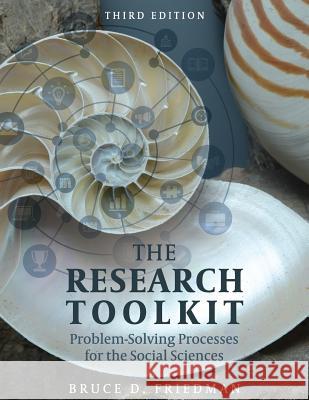Problem-Solving Processes for the Social Sciences » książka
Problem-Solving Processes for the Social Sciences
ISBN-13: 9781516508624 / Angielski / Miękka / 2017 / 172 str.
Many practitioners of social science shy away from research, concerned that it is too much like doing arithmetic. In contrast, The Research Toolkit: Problem-Solving Processes for the Social Sciences presents research as a scientific art form. The book takes readers through a step-by-step process to help them arrive at a research protocol that aligns with their unique problem-solving styles. It shows how to organize problems into manageable steps and tap into the creativity involved in developing solutions.
Readers learn how to construct a researchable question. They become familiar with samples and the difference between descriptive and inferential statistics. They study measurement, psychometrics, experimental research, and research design. They learn about various forms of research including causal comparative research, community-based participatory research, and participatory action research. They enhance their understanding of correlations and correlational research.
Designed to serve as a primary text in foundational research courses, The Research Toolkit features universal, adaptable content that allows each student to develop a personalized approach. The book can be used in a wide variety of social science disciplines at the baccalaureate, masters, and doctoral level. Bruce D. Friedman holds a Ph.D. from Case Western Reserve University's Jack, Joseph, and Morton Mandel School of Applied Social Sciences and an M.S.W. from Washington University's George Warren Brown School of Social Work. Dr. Friedman is a professor in the social work program and co-director of the Center for Social Justice at California State University, Bakersfield, as well as a core faculty member for the Ed.D. program also at the California State University, Bakersfield. A mixed methods researcher, he has studied issues of homelessness and the roles of shelters in addressing the needs of the homeless population, obesity problems in South Texas, and school disciplinary practices in California. He has written extensively in the field, including his authorship of the Ecological Perspectives Cookbook: Recipes for Social Workers and co-editorship of Public Health, Social Work, and Health Inequalities.











